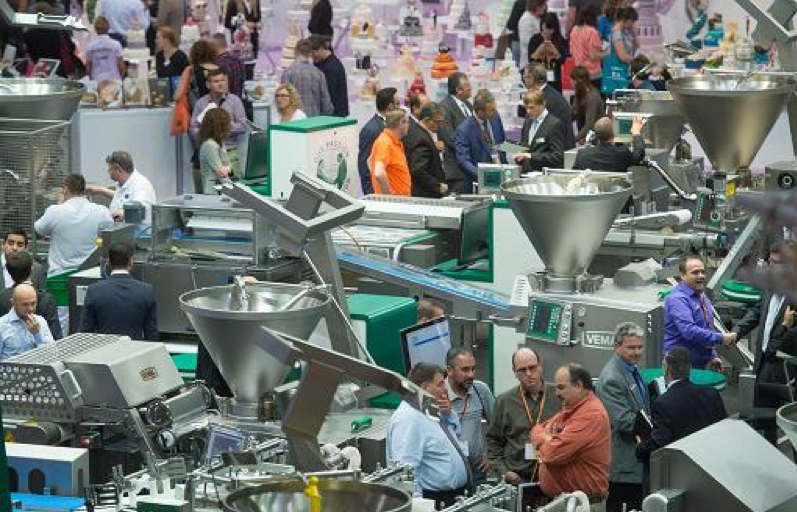IBA report – In Germany, efficiency equals survival

A first-time visit to Munich’s IBA could be daunting: over 77,000 people milling around 12 large halls packed floor to ceiling with equipment and machinery.
Luckily for me, CyBake was there at the invitation of our local partner toolbox Software, which specialises in automated order-picking, distribution and warehouse control systems. What more, our office’s native German speaker, Andrea Duempelmann, accompanied me, meaning that we got to talk to bakers and industry players properly and in-depth.
What I found is that in some ways the German bakery market is similar to our own but in others it is markedly different. My belief is that British bakers can learn from those differences.
Just as in the UK, there is a healthy bakery software market in Germany with a number of providers competing for business. As with back home, quite a few of these seemed to be fairly ancient and written in the old Windows DOS days. But, as with our domestic market, there were increasingly successful firms offering solutions based on up-to-date technology.
What is different is that smaller – say, four shop – bakers are just as obsessed with capturing data and using it properly as the big operators. They want to know how much of each ingredient went into a batch of white loaves and who is doing precisely what on the shop floor.
In Britain, we often associate this level of analysis with enterprise-level plant bakers. In Germany, smaller craft bakers also want to trace which ingredient lot numbers were used in production on a particular day and where those products went to.
Understanding Costs
One reason for this is that there is a lower margin on bakery goods in Germany. Understanding the cost of making products, and making the products to the same quality time and time again, is seen as essential.
German bakers see it as critical to find out what went wrong if a batch of cakes gets ruined. They want to find out who put what into the batch and why it was too floury or too wet and then improve on that process the next time round.
Another theme I found German bakers returning to time and again was flexibility. If a customer makes a request for a different type of bread, they will respond to it quickly and put it into production, hence a big emphasis on special instructions.
Integration was another key theme; and one very close to our hearts at CyBake. Software providers either offered all-in-one solutions or were working hard to make sure their software integrated with other firms’ applications and equipment.
What is the reason for this obsession with precision and data accuracy? Ask around, and one big answer would seem to be that German bakers face stiffer competition than their British counterparts.
Depending on who you talk to, there are anywhere between 8,000 and 15,000 bakery firms serving a population of around 80 million. In the UK, we have maybe 4,000 bakeries and a population of around 60 million. Bread is undeniably cheaper in Germany.
However, it is not as if British bakers really have an easy ride in comparison. The inexorable rise of the corporate multiples on the high street and the power of the supermarkets are just two serious pressures on our independent bakeries, whether they are retailers, wholesalers or both.
Attention to Detail
I believe that British bakery managers can learn from their German counterparts when it comes to this attention to detail, data capture and forward planning. It is literally one of the only ways to take true control and carve out the biggest margins while ensuring continuing product quality.
As another example, German bakers appear to be keener on using the data they collect to predict how much ingredients they should be ordering from their suppliers based on how much they’ve used over a period of time.
Once a bakery has got that data, then it can start using it effectively to become more efficient. Without adding some science to this process, it can easily be a case of: “I normally order x pallets of flour; I’ll order another x pallets of flour this week.”
The problem with this is that as an operation grows, it starts to have out-of-stocks because not enough ingredients have been ordered. Or the business gets out-of-dates because it is ordering too much. Stock builds up and it is not actually being used – the bakery just keeps ordering the same that it ordered last week and the week before.
So for us at CyBake, our trip to the IBA was extremely encouraging as many of the ideas we have introduced to the UK market are taken as given. Because for the German baker, efficiency equals survival.



